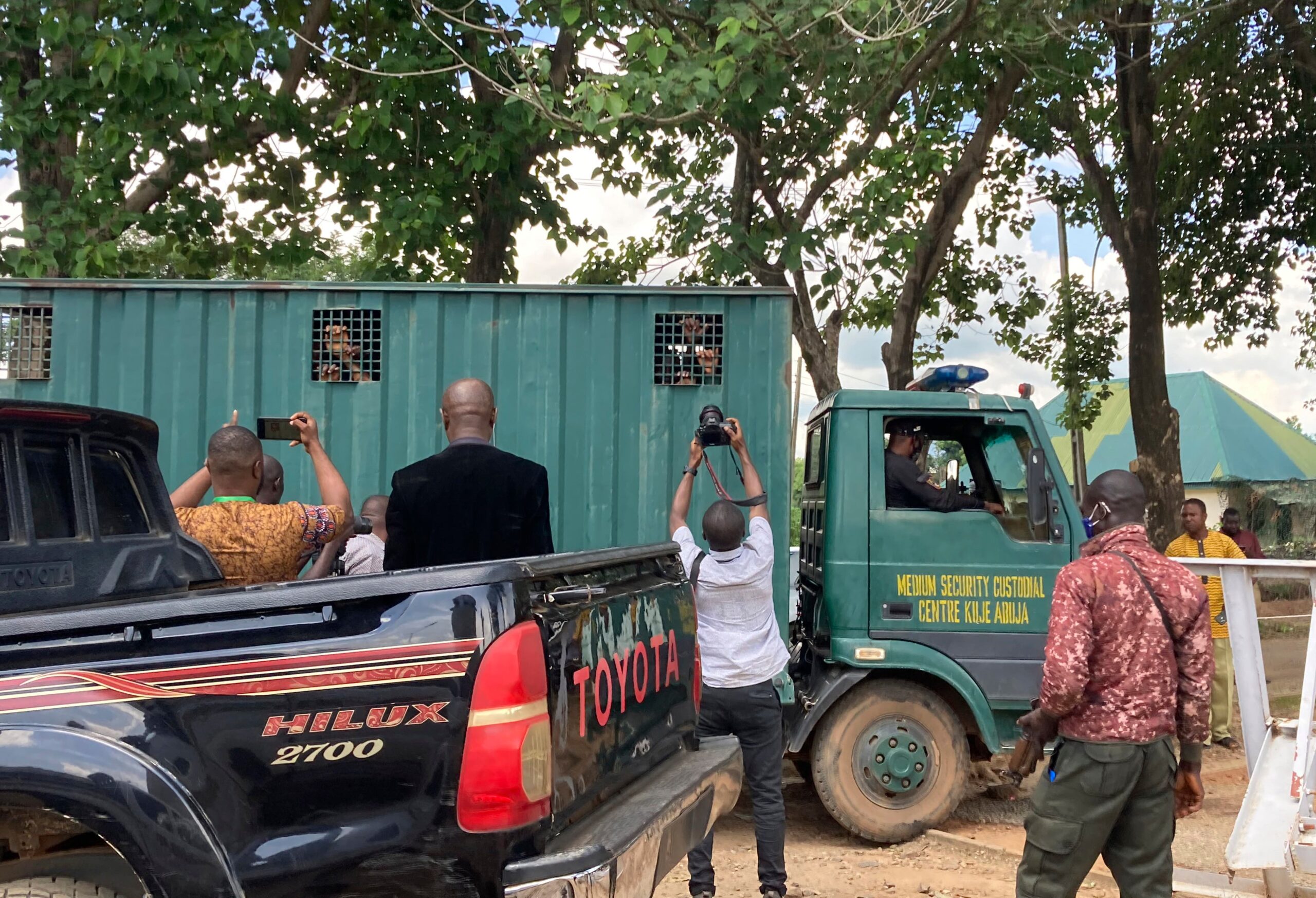

At least 600 inmates have escaped a maximum-security prison in Nigeria’s capital Abuja, authorities said, claiming that extremist rebel group Boko Haram were responsible for the mass jailbreak.
A guard that was on duty was killed after the “very determined” rebels used “very high-grade explosives” to destroy the wall of the prison to gain entry, according to Shuaib Belgore, permanent secretary of the Nigerian interior ministry.
The explosions and gunfire were heard in Kuje, an area on the outskirts of the city where the prison is situated, at about 10pm on Tuesday.
The attackers are believed to be part of Boko Haram, a hardline group linked to the so-called Islamic State.
After blowing up the prison wall, they forced their way in and allowed the hundreds of prisoners – including their own members and allies – to flee the compound, according to the authorities.
About 300 of the jailbreakers have been recaptured, prison officials said.
The wall of the Kuje maximum prison in Abuja after the attack
(AP)
Mr Belgore said: “We understand they are Boko Haram. They came specifically for their co-conspirators.
“Right now, we have retrieved about 300 out of about 600 that got out of the jail.”
Over the years, Nigeria’s rebels have carried out several jailbreaks in the country’s northeast region but the attack on the prison in Abuja is their first in the capital city.
According to the United Nations, Boko Haram and splinter group Islamic State Central African Province are blamed for violence that has killed more than 35,000 people and displaced more than two million people over more than a decade.
Instability, hunger and lack of health services caused by the insurgency have indirectly caused the deaths of more than 300,000 additional people, the UN also said.
Children aged under five make up nine out of 10 people killed by the insurgency, according to the UN’s figures.
Nigeria is Africa’s most populated country with 203 million people. Its security has been destabilised by Islamic State-linked militants in the north and separatist movements in the south.
While some violence is motivated by religious extremism, some conflict is fueled by disputes over natural resources such as petroleum, natural gas, gold, tin, iron ore, coal, limestone, niobium, lead, zinc and farmland.

